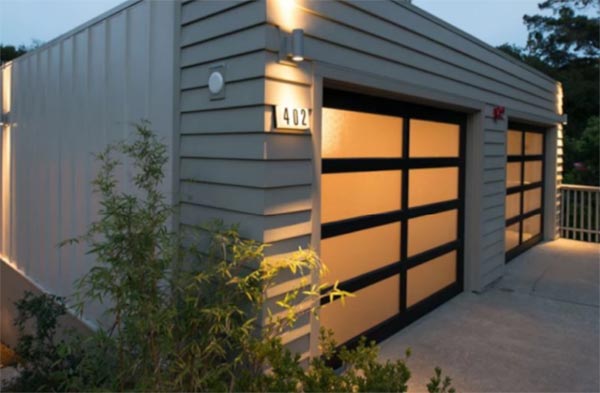
James Hardie products are known by many names — HardieBoard, HardiePlank, fiber board, and fiber cement siding, to name just a few. This is the most popular type of siding used across North America, and the product really lives up to its reputation.
It’s attractive, durable, and easy to maintain—a go-to for new homes and older homes alike—and its eco-friendly materials last for years!
Though James Hardie siding is known for its functionality and longevity, it is also arguably the most beautiful option for protecting your home as well. If you want a home that stands out from the others in your neighborhood, Hardie siding has a wide range of style options and colors to suit any taste or architecture style.
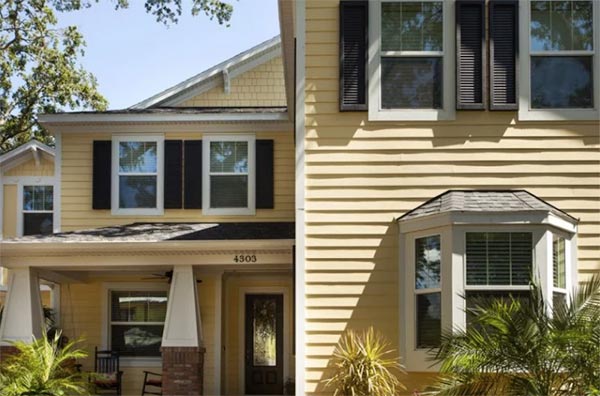
What is James Hardie siding?
Hardie siding products are made from fiber cement, which is composed of three key components: cement, sand, and cellulose fiber. Developed by James Hardie roughly 30 years ago, fiber cement siding covers more than 8 million homes across North America. The materials are dyed and formed into boards, which are available in a variety of styles, finishes, and colors.
Fiber cement siding is environmentally-friendly and far surpasses vinyl siding in that regard. Vinyl contains a large percentage of plastic material, which does not break down easily and will remain in landfills for decades. Fiber cement, by contrast, is created using sustainable materials. In fact, James Hardie fiber cement has been hailed as being very environmentally friendly and was named the “Greenest Siding Brand” by Green Builder Media in 2017.
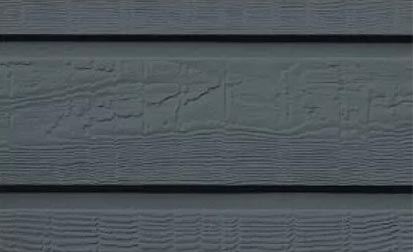
Dedicated to improving their product technology, James Hardie has spent over $100 million in research and development. Since 2013, Good Housekeeping Research Institute has backed HardiePlank lap siding as a highly valued product. In order to receive this mark, products go through rigorous evaluation for fade, fire resistance, weather, water, and more.
Comparing Fiber Cement with other Siding Products
The most popular choice in siding in many parts of the country is vinyl because it is cheap to source and install. However, when you look at longevity vinyl siding may not be the best option.
Your home’s exterior is exposed to the elements: sun, rain, summer heat, winter cold — even wind can affect the lifespan of your home’s protective barrier. Due to its plastic composition, vinyl siding is extremely sensitive to temperature and weather changes and can warp, crack, or even melt.
Vinyl is prone to:
- Cracking
- Buckling
- Short lifespan
- Melting
- Brittleness
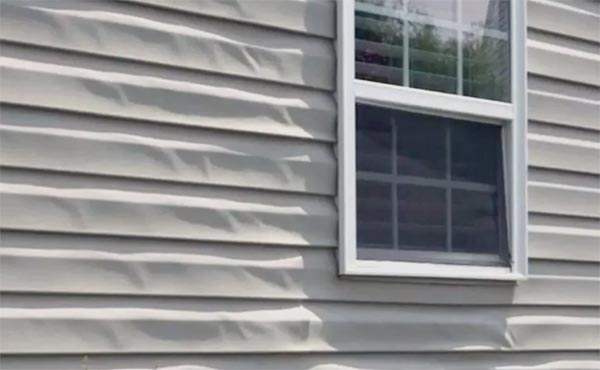
Damaged siding isn’t just ugly, it’ll reduce your home’s insulation, potentially leading to higher utility costs. It will also increase the risk of water damage. And vinyl isn’t the only product that is susceptible to long-term exposure to moisture. Engineered wood will also expand and buckle as it soaks up moisture over time.
Because vinyl products change depending on temperature, replacing or installing new vinyl siding can be difficult during particularly hot or cold weather periods. For example, if vinyl is installed during cold weather, the fitment may be affected at the onset of warmer weather, when the vinyl relaxes and expands.
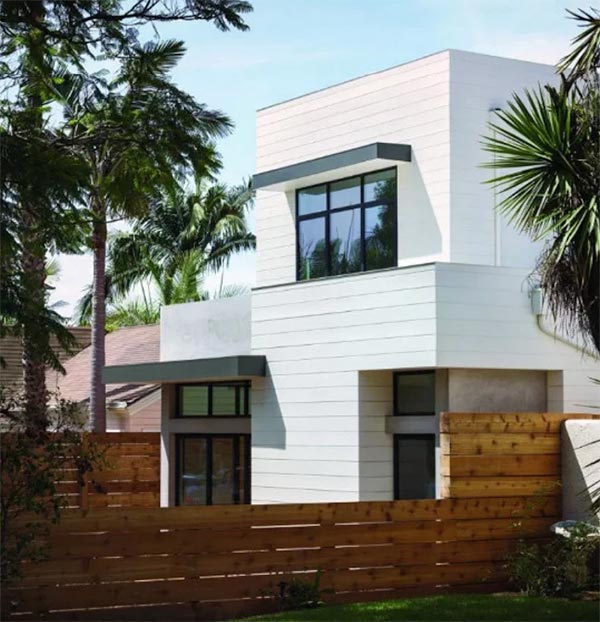
By contrast, James Hardie siding does not swell, warp, or crack due to changes in temperature or climate. It’s a strong and appealing substitute for vinyl siding. Made of wood fibers, cement and silica, fiber cement doesn’t expand and contract the way that plastic does. It also manages moisture better than vinyl and wood siding.
James Hardie products are Engineered for Climate®, meaning you can be confident your home is protected, no matter what Mother Nature brings your way.
Check out part two of this homeowner’s guide in our next article. We’ll discuss how to tell when it’s time to replace your home’s siding.
Need Help with Your Home’s Exterior?
We at Peninsula Siding Company are here to make the gorgeous home of your dreams a reality. We will thoroughly and accurately assess your specific needs, provide you with expert recommendations, and deliver a quality product that you will be proud of. Call us at (650) 287-4208 or fill out our form to arrange a quote today!
